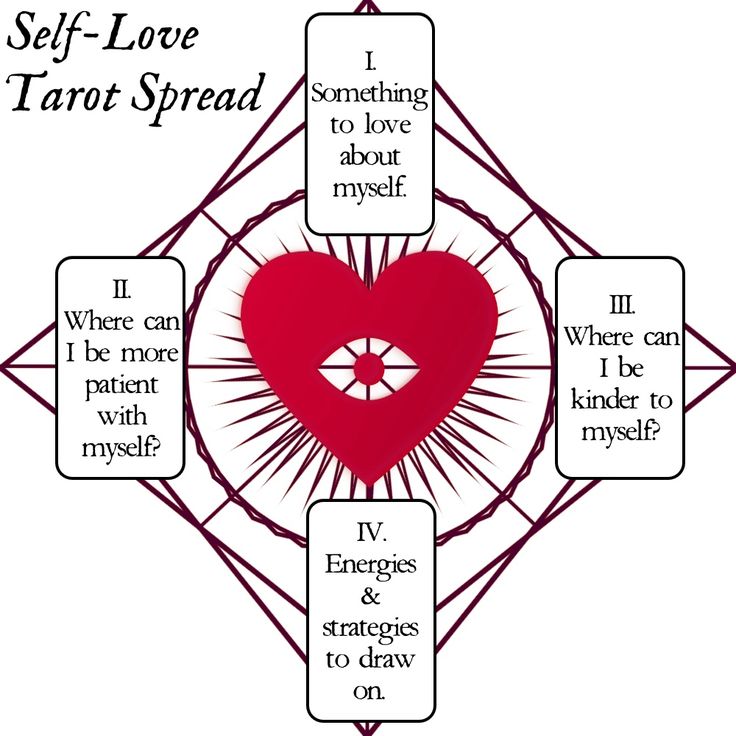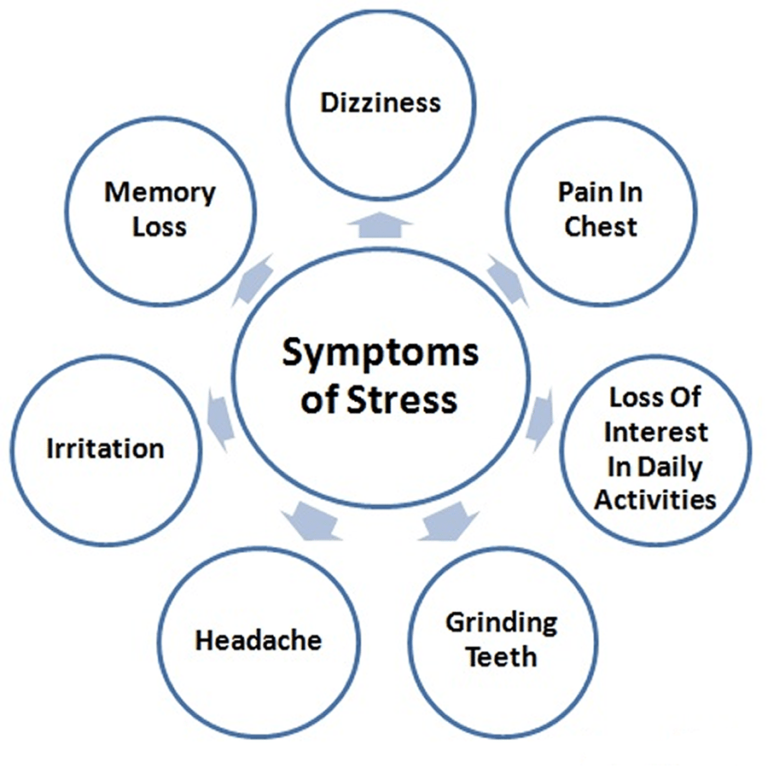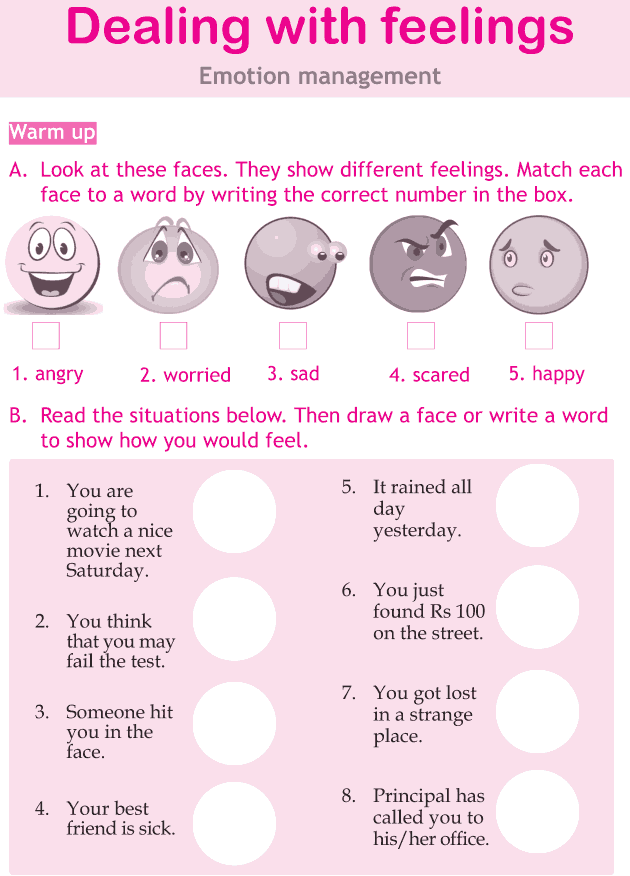Self care love
Self-Love and What It Means
What is self-love?
Before a person is able to practice it, first we need to understand what it means.
Self-love is a state of appreciation for oneself that grows from actions that support our physical, psychological and spiritual growth. Self-love means having a high regard for your own well-being and happiness. Self-love means taking care of your own needs and not sacrificing your well-being to please others. Self-love means not settling for less than you deserve.
Self-love can mean something different for each person because we all have many different ways to take care of ourselves. Figuring out what self-love looks like for you as an individual is an important part of your mental health.
What does self-love mean to you?
For starters, it can mean:
- Talking to and about yourself with love
- Prioritizing yourself
- Giving yourself a break from self-judgement
- Trusting yourself
- Being true to yourself
- Being nice to yourself
- Setting healthy boundaries
- Forgiving yourself when you aren’t being true or nice to yourself
For many people, self-love is another way to say self-care. To practice self-care, we often need to go back to the basics and
- Listen to our bodies
- Take breaks from work and move/stretch.
- Put the phone down and connect to yourself or others, or do something creative.
- Eating healthily, but sometimes indulge in your favorite foods.
Self-love means accepting yourself as you are in this very moment for everything that you are. It means accepting your emotions for what they are and putting your physical, emotional and mental well-being first.
How and Why to Practice Self Love
So now we know that self-love motivates you to make healthy choices in life. When you hold yourself in high esteem, you're more likely to choose things that nurture your well-being and serve you well. These things may be in the form of eating healthy, exercising or having healthy relationships.
Ways to practice self-love include:
- Becoming mindful. People who have more self-love tend to know what they think, feel, and want.

- Taking actions based on need rather than want. By staying focused on what you need, you turn away from automatic behavior patterns that get you into trouble, keep you stuck in the past, and lessen self-love.
- Practicing good self-care. You will love yourself more when you take better care of your basic needs. People high in self-love nourish themselves daily through healthy activities, like sound nutrition, exercise, proper sleep, intimacy and healthy social interactions.
- Making room for healthy habits. Start truly caring for yourself by mirroring that in what you eat, how you exercise, and what you spend time doing. Do stuff, not to “get it done” or because you “have to,” but because you care about you.
Finally, to practice self-love, start by being kind, patient, gentle and compassionate to yourself, the way you would with someone else that you care about.
- Written by Jeffrey Borenstein, M. D., President & CEO of the Brain & Behavior Research Foundation. This blog post also appears on the Gravity Blankets Blog.
D., President & CEO of the Brain & Behavior Research Foundation. This blog post also appears on the Gravity Blankets Blog.
Find more articles containing tips and advice by clicking here.
Self Care 101: A Step-by-Step Guide to Your Self Love Journey
Self care is the way in which we care for our mental, emotional and physical health. It’s activities we do to keep us as our best selves. Practicing self care is an action-oriented way that we can show ourselves self love. Self love is exactly what it sounds like, loving yourself. It means loving all aspects of yourself, by accepting your flaws, your weaknesses and the things you don’t always like about yourself. It is also about holding high standards for your own well-being and happiness.
For many people, concepts of self care and self love can be new. After all, we are often taught that prioritizing yourself or your needs is selfish and that you should focus your energies on other people. But practicing self love doesn’t make you selfish, or a narcissist, it just means that you won’t settle for less than you deserve, because you understand and respect your own needs.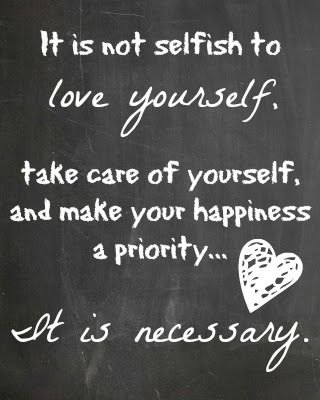 Practicing self care and self love often just means extending the same respect and care you have for others to yourself. We have all heard the saying treat others how you want to be treated. But when thinking about self love and self care it is often important to consider the opposite. Treat yourself with the same kindness and grace you extend to friends, families and loved ones in your life. We are often much kinder to our loved ones than we are to ourselves.
Practicing self care and self love often just means extending the same respect and care you have for others to yourself. We have all heard the saying treat others how you want to be treated. But when thinking about self love and self care it is often important to consider the opposite. Treat yourself with the same kindness and grace you extend to friends, families and loved ones in your life. We are often much kinder to our loved ones than we are to ourselves.
As the saying goes, we are often our own worst critics. Practicing self love means ditching that old adage and moving forward, by creating an environment for yourself in which you can make mistakes, grow and flourish. Self love is a great goal to have, but in practice it may seem a bit abstract to try and achieve, especially if you are not in the habit of practicing self care.
Self care is a practice that can lead you to more self love over time. Self love is not something that will happen for you overnight, especially if you are coming from a place of self-hate, harsh criticism, perfectionism, etc.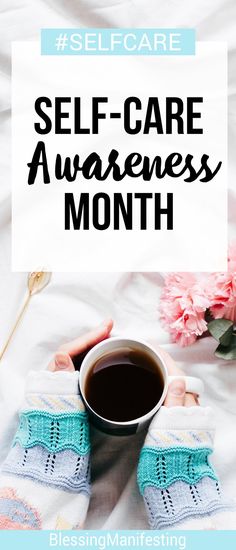 etc., but it can be slowly incorporated into your life through consistent acts of self care. Working self care into your routine with small, achievable steps will increase your self-kindness, self love and common humanity.
etc., but it can be slowly incorporated into your life through consistent acts of self care. Working self care into your routine with small, achievable steps will increase your self-kindness, self love and common humanity.
Here are ten tips you can follow when you are on your journey to self love.
1. Recognizing and accepting your emotional state:
No one is happy all the time. Nor are they positive or the best version of themselves each and every day. An important part of self love is holding yourself to reasonable standards. You must acknowledge that some days will be better than others, and that it’s totally okay to have an off day, or week or even a slump period. It’s important to check in with your emotional state frequently, so that you can recognize your moods and learn to accept them. In practice, this means not acting like things are fine, when you know they aren’t. How frustrated do you feel when someone says “I’m fine” or “It’s nothing” when they clearly are NOT fine and it clearly IS something?? Don’t play those same games with yourself.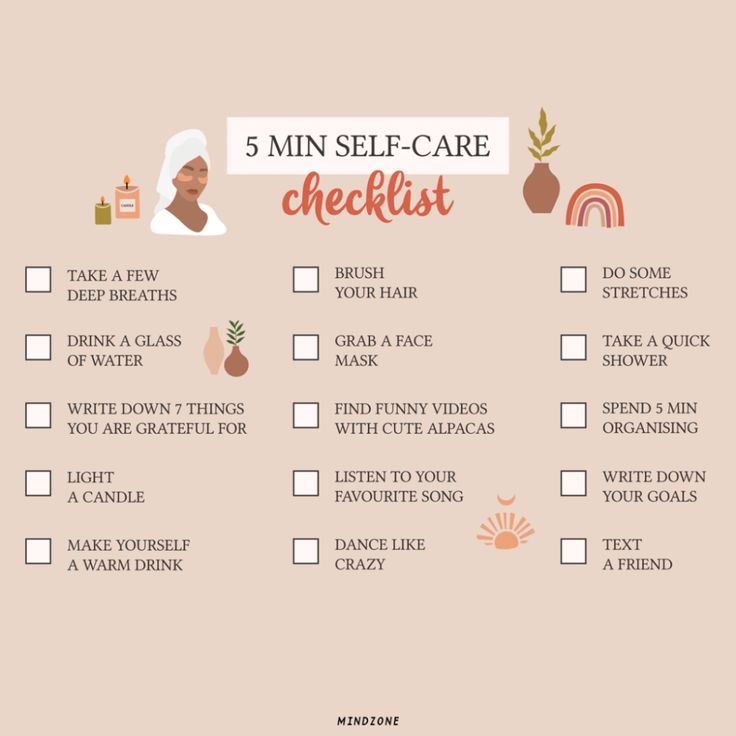 Tune into your emotional state so that you can act and plan accordingly!
Tune into your emotional state so that you can act and plan accordingly!
Not only must you recognize your emotional state, but you need to accept it as well. A key part of accepting your emotional state as it is, is tailoring your plans or your routine to your current state. Learning to check in with your emotional state is the basis of any good self care routine. It is also important to recognize when a slump period has gone on for too long. While it is important to cut yourself some slack, take some downtime, or totally give into a bad mood every once in a while, it is also important to understand that our actions, habits and routines can really effect our moods! If you are having a major slump, consider how you can change your routine in a positive way to try to get back in the swing of things. Self care is often a balance of showing yourself kindness and forgiveness and maintaining good habits that work to actively improve your mood.
2. Take time for yourself
Attention all extroverts (and introverts as well)! As great as it is to be around people and to socialize, it’s super important to take time for yourself so that you can evaluate your emotional state (the importance of which we explained above) and dedicate some time to self care. A lot of people have the tendency to stretch themselves really thin between work, daily life and social obligations. And we get it, having a fun social event to look forward to is often what helps get people through the week.
A lot of people have the tendency to stretch themselves really thin between work, daily life and social obligations. And we get it, having a fun social event to look forward to is often what helps get people through the week.
Afterall, who doesn’t love a good Wednesday evening plan to get them through hump day? But it’s important that these social events don’t interfere with your much-needed me-time. For people with extreme FOMO, it can be very difficult to turn down a fun night out or a movie with friends. But sometimes activities that you normally find fun are completely exhausting, because you really should have taken that free time to reflect inward and do some self care. We are not suggesting that you flake on your social calendar, just that you should pencil in some time to do things that rejuvenate you. This can mean literally scheduling time on your calendar that allows you to recuperate! Though finding this alone time in your busy life might seem like the hardest part, once you do carve out some alone time, it’s important not to waste it!
Don’t spend time reserved for self care scrolling through your phone or mindlessly watching TV! Take some time (even just a few minutes!) to do some mindfulness activities and whatever else helps you check in with your emotions.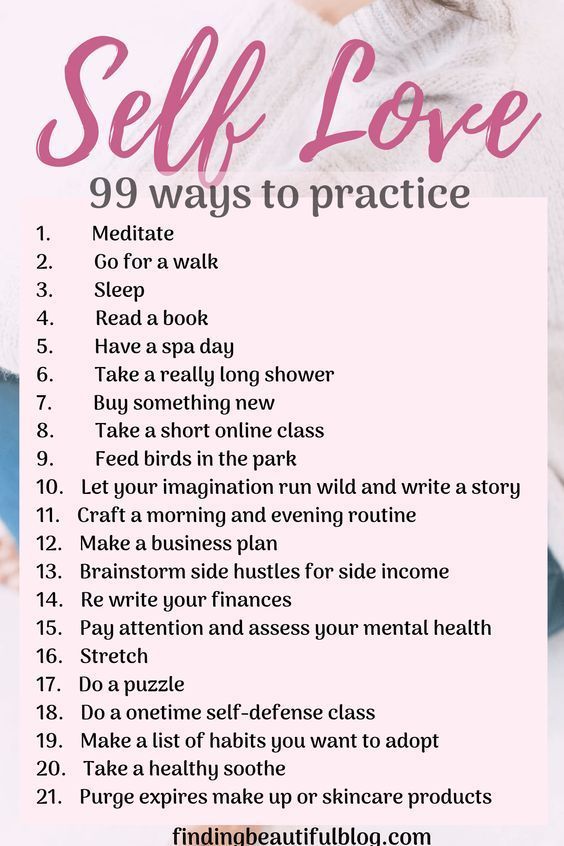 This can mean scheduling a weekly yoga class, planning on taking a walk after work, downloading a meditation app, or taking up journaling. There is no wrong way to practice self care as long as you're doing activities that help you destress and feel grounded. It’s not selfish to prioritize alone time so that you can focus on self love, it’s a non-negotiable step of your self care routine.
This can mean scheduling a weekly yoga class, planning on taking a walk after work, downloading a meditation app, or taking up journaling. There is no wrong way to practice self care as long as you're doing activities that help you destress and feel grounded. It’s not selfish to prioritize alone time so that you can focus on self love, it’s a non-negotiable step of your self care routine.
Nowadays, staying home means staying safe. Get creative stay-at-home self-care ideas and more with a free 7-day trial of our award-winning relationship coaching app. Install now!
3. Get enough sleep
Sleep is SO important, and often SO overlooked in this day and age. People often find that when they’re super busy and stressed out that their sleep cycle takes a hit. When you have so many things on your plate, it can be easy to justify late nights and early mornings just so that you can squeeze everything in. Sometimes there just aren’t enough hours in the day, and cutting out a lazy morning in bed may feel like the only option.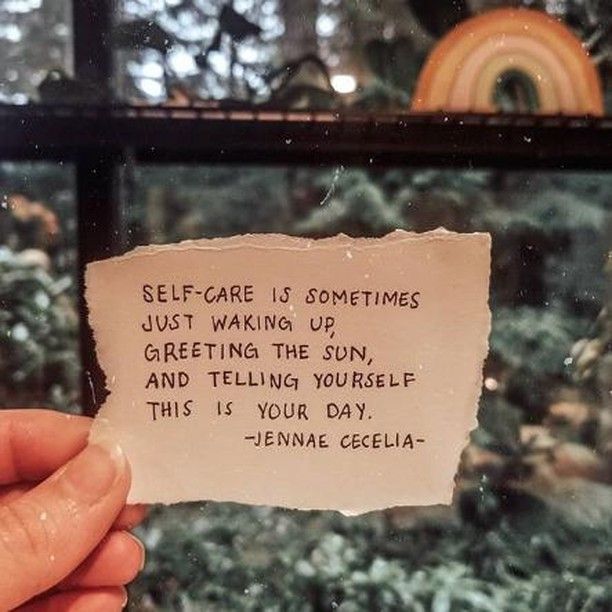 But, when sacrificing your sleep becomes the norm, your mental and physical health will be negatively affected.
But, when sacrificing your sleep becomes the norm, your mental and physical health will be negatively affected.
When you’re on your journey to self love, it’s important to upkeep your physical and mental health so that you have the time and the energy to work on your emotional health, and self love. Getting enough sleep is the foundation of all forms of health! In addition to getting enough sleep, make sure that you focus on the quality of your sleep. Creating a bedtime routine is a good first step towards improving the quantity and quality of your sleep. There are tons of sleep apps out on the market that can help you track your sleep and can help you fall asleep.
4. Exercising
Physical activity is super tied in to our moods as well as our physical and mental health. A key part of self care is maintaining your physical health so that your body is functioning properly and serving you. Another key part of self care is our mental health, and exercise helps with that too!
Exercise can boost endorphins and help us relieve all the stress that builds up in day-to-day life.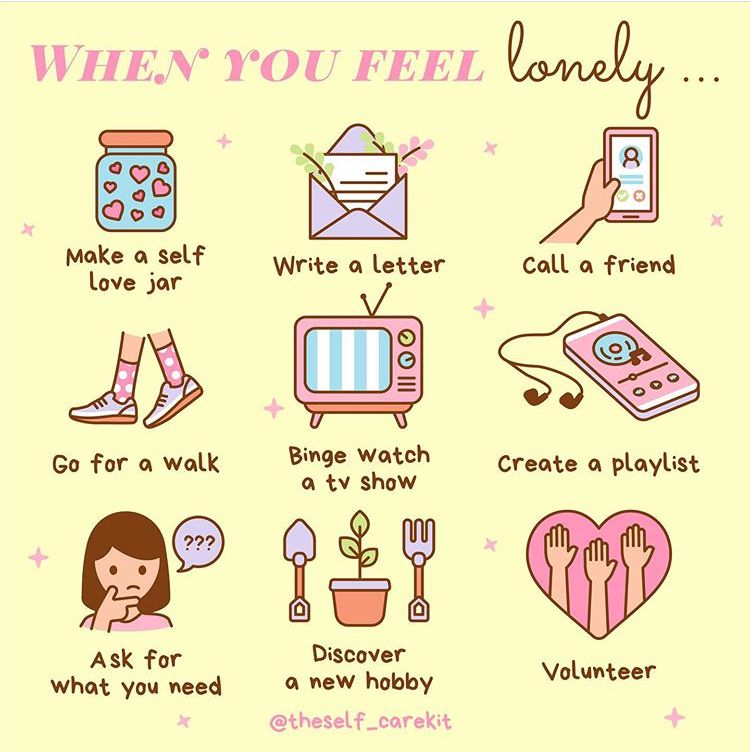 If you are really stressed out, adding one more thing (like going to the gym) to your to-do list might seem overwhelming. But exercise doesn’t have to mean sweating it out in the gym! It can be as simple as taking a walk on your lunch break, or doing 30 minutes of yoga (there are apps for that!) when you get home. Getting into a routine that incorporates exercise into your daily life will help maintain your mental and physical health and help you along on your journey to self love.
If you are really stressed out, adding one more thing (like going to the gym) to your to-do list might seem overwhelming. But exercise doesn’t have to mean sweating it out in the gym! It can be as simple as taking a walk on your lunch break, or doing 30 minutes of yoga (there are apps for that!) when you get home. Getting into a routine that incorporates exercise into your daily life will help maintain your mental and physical health and help you along on your journey to self love.
If you are not in the habit of exercising it can be intimidating to go on a mile-long run, or sign up for a yoga class. Remember to hold yourself to reasonable standards and allow yourself to ease into a more active lifestyle. If you push yourself too hard in the beginning, you will probably get discouraged and give up on exercise altogether. Instead, try to slowly incorporate more movement into your lifestyle and work up towards more vigorous activity. This can mean taking the stairs instead of the elevator, parking at the farthest spot in the parking lot, or hopping off the train or bus a couple stops earlier than you need to to get a walk in.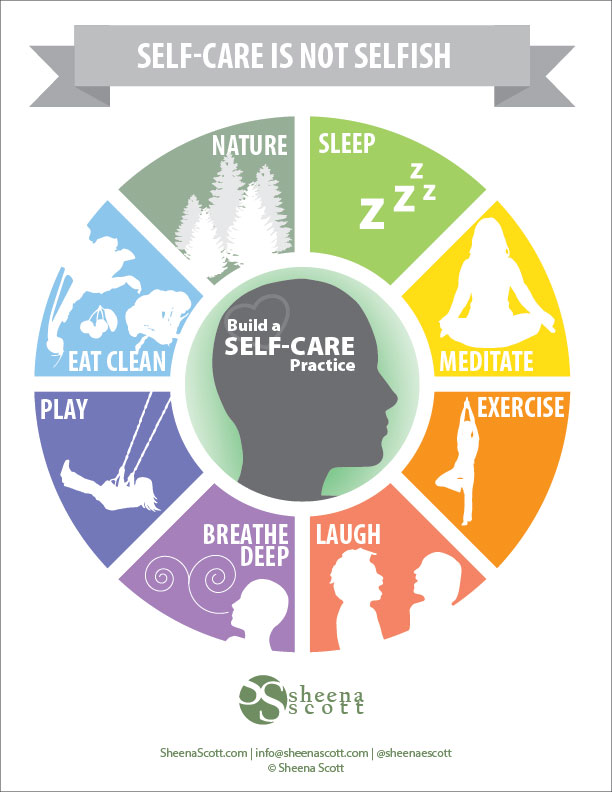
5. Eating right
How can you expect to be the best version of yourself if you feel terrible? Paying attention to your diet is an important part of self care, because it contributes to how you feel as well as your energy level. You can exercise as much as you want, but if all you eat is junk, there is no chance that you’re going to feel good or be in good physical health. Also, eating healthy can make it WAY easier to exercise, because it leads to higher amounts of energy. Eating right doesn’t mean that you need to be dieting all the time! It’s not about your weight, but more about how you feel. Pay attention to foods that upset your body (a lot of people have intolerances to food that they’re completely unaware of!), and try to get all your main food groups in. Eating right can also affect your mental health. Eating healthy foods can actually help your short-term memory, so, yah, brain foods totally do exist! Eating things like fatty fish, nuts, leafy greens and foods high in antioxidants (blueberries, acai berries) is great for your body, and can actually help your brain function.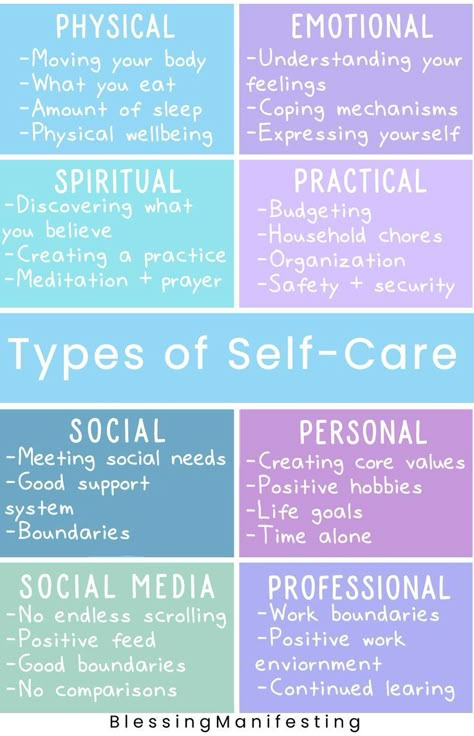
Whether you’re ordering in or cooking together, beginning a nutrition journey can bring you and your partner closer. For more ways to get healthy and start feeling good in your relationship, try Relish free for 7 days.
6. Using self-talk
A huge part of your self care journey is learning to engage in positive self-talk. Self-talk is the inner dialogue we have running through our heads most hours of the day. Self-talk is normally something that we do unconsciously and it is often indicative of our subconscious thoughts and feelings. Sometimes our self-talk can be very negative, leading to feelings of self-doubt, self-judgement and even self-loathing. If you find that your self-talk narrative is overwhelmingly negative, don’t fear - there are mindfulness strategies you can use to shift your inner dialogue to be more positive.
An easy and actionable way to do this is to give yourself positive affirmations. What are things you like about yourself? What are you proud of? Reminding yourself of these things on a daily basis (maybe as a part of your morning routine as you brush your teeth for example) can put you in a more positive frame of mind that will organically encourage positive self-talk. An important part of using self-talk to your benefit, is catching yourself when you engage in negative self-talk. If you notice this, try to pinpoint the cause, and move forward in a forgiving way that encourages positivity.
An important part of using self-talk to your benefit, is catching yourself when you engage in negative self-talk. If you notice this, try to pinpoint the cause, and move forward in a forgiving way that encourages positivity.
7. Challenging a negative story about yourself
Sometimes if negative self-talk goes unchecked for too long, we start to develop negative narratives about ourselves that can end up being really damaging to our self-esteem. We end up internalizing these negative narratives about ourselves and before we know it, these stories end up changing our attitudes and even our behaviors.
In order to get to the root of the problem, you need to identify the negative stories you’re telling yourself about yourself. Where do these negative stories come from? Are they rooted in a single incident? Next, you need to figure out why you hold on to these negative stories. If you are able to identify why you are perpetuating these stories, you can help break the negative thought cycle that is perpetuating negative self-talk. To challenge these negative stories, you can engage in the same positive self-talk strategies listed above. Start highlighting the good things about yourself to yourself so that you can internalize a positive narrative.
To challenge these negative stories, you can engage in the same positive self-talk strategies listed above. Start highlighting the good things about yourself to yourself so that you can internalize a positive narrative.
Don’t let self-doubt and insecurities ruin your relationship - get started with our award-winning relationship training app instead. Start your 7-day free trial today!
8. Forgiving yourself
This means embracing self-compassion. We all make mistakes – big and small– and while at the time they may seem earth-shattering, they probably aren’t. Life moves on and so should you. Embracing self-compassion will allow you to reflect on your actions with kindness, empathy and support, which will allow you to forgive yourself for whatever happened. Holding onto a grudge against yourself can be as damaging as holding onto a grudge against someone else.
Grudges require holding on to a huge amount of negative energy, which can be absolutely exhausting. Letting go of the negative feelings you have about yourself or your actions through forgiveness will free up your energy and emotional capacity so that you can embrace more loving behavior.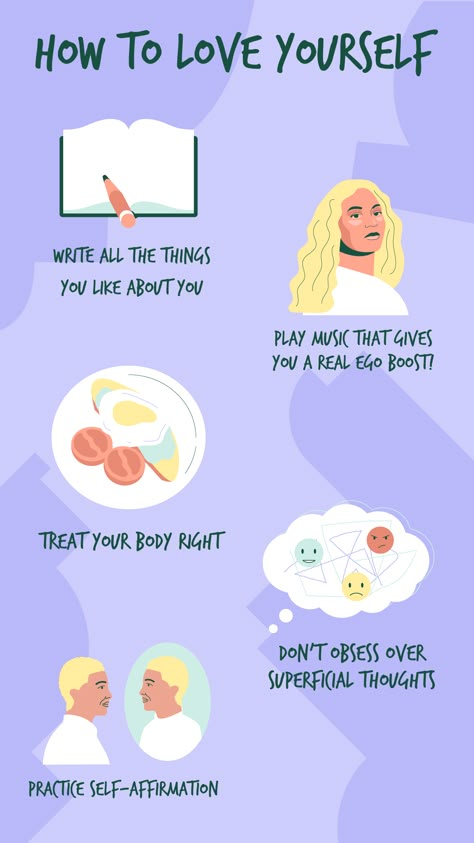
9. Committing to self love
Achieving self love can be a long journey, not something that just happens overnight. It can take a long time to undo the bad habits we pick up along the way that cause us to be unkind to ourselves. It is important to remember that this is a process that can take time and commitment. Self love is not about instant gratification. Most of us know how to give ourselves a little pick-me-up, whether it’s treating yourself to ice cream, buying a cute new top, or bingeing a couple episodes of your favorite show. And while these things are fun, and you should totally continue to indulge in them, they are not long-term avenues to self-kindness and self love. While you’re on your journey, don’t forget about the little things that bring you joy, but remember that mindfulness and dedication are the keys to success.
10. Commit to learning more
Words like self care and mindfulness seem to be all over the place these days, which is such a win as we all learn to become more introspective and accepting of who we are.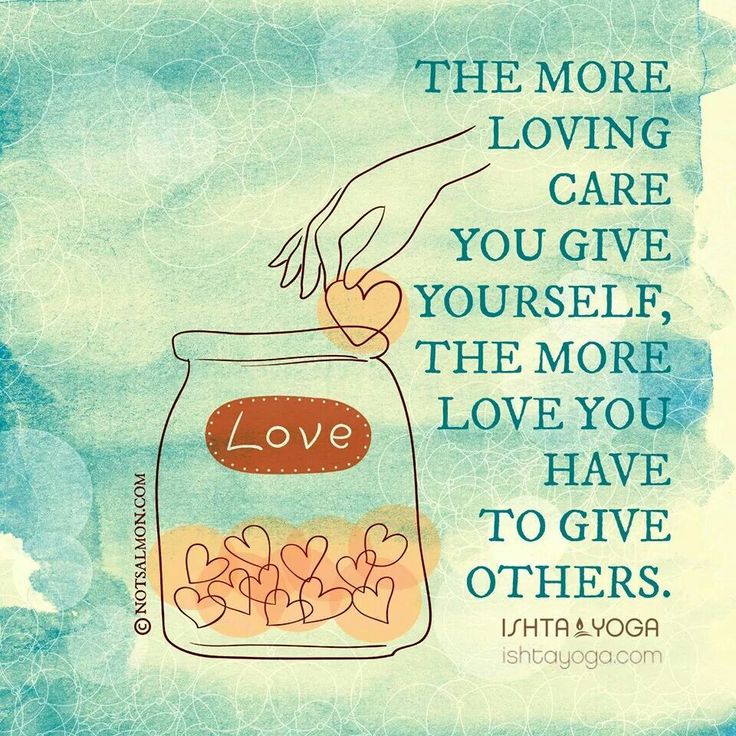 This is a noticeably new trend, which means that more research and techniques are coming out all the time. An important part of your self care journey should be committing to trying new avenues for self care, and continuing to learn as these ideas advance. We can always learn to show ourselves more compassion and love. Keeping up on the most recent literature on the subject can help you find creative new ways to care for yourself! Read a book or download a new mindfulness app or even seek out online forums that discuss self care techniques. Engaging with new materials will teach you more and more about how to take care of your mental, physical and emotional state.
This is a noticeably new trend, which means that more research and techniques are coming out all the time. An important part of your self care journey should be committing to trying new avenues for self care, and continuing to learn as these ideas advance. We can always learn to show ourselves more compassion and love. Keeping up on the most recent literature on the subject can help you find creative new ways to care for yourself! Read a book or download a new mindfulness app or even seek out online forums that discuss self care techniques. Engaging with new materials will teach you more and more about how to take care of your mental, physical and emotional state.
Just like any relationship, practicing self-care and self love takes time, patience and commitment. Let Relish help you on your self love journey with unlimited one-on-one coaching, customized lesson plans and more. Click here to get started for free!
Embedded content: https://www.youtube.com/watch?v=4WKvGfnM4BI
Self-care and what true self-love is
01/06/2019
Kudryavtseva Maria
Psychologist, Psychotherapist Moscow
5 years on the site, rating: 255
People often confuse self-love and self-care with selfishness and arrogance.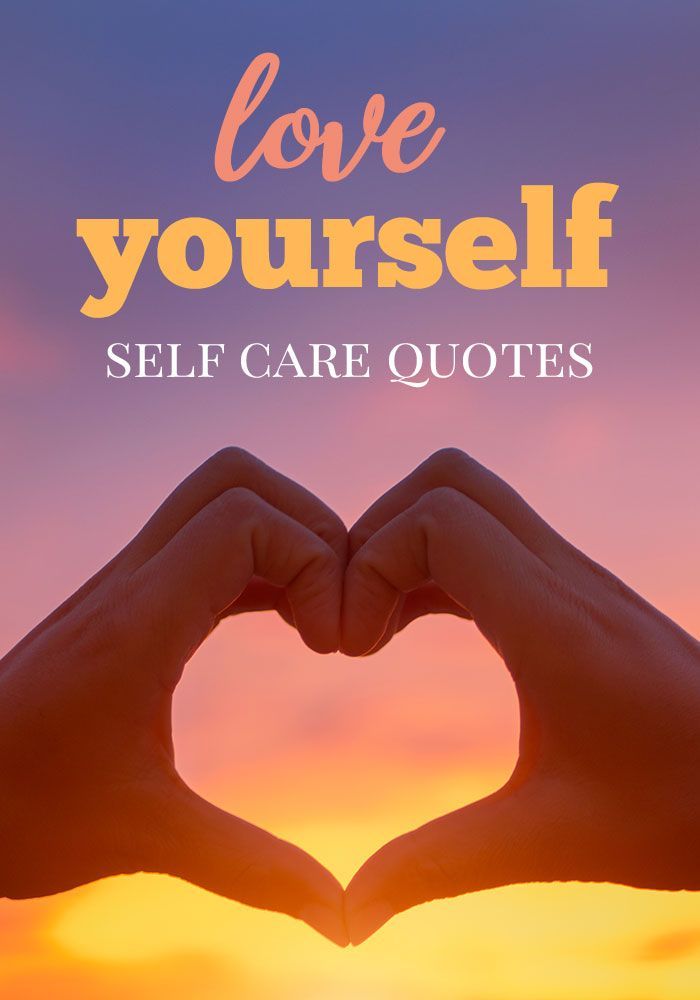 And self-care means doing something nice for yourself, not straining, having fun and having an easy time.
And self-care means doing something nice for yourself, not straining, having fun and having an easy time.
I do not argue that there is a healthy dose of selfishness in self-love. Everything that a person does, he does to satisfy his needs, no matter how altruistic ideas cover it up. So taking care of yourself you need to please and even pamper yourself. BUT
Once I heard the phrase: "True love is ruthless"! She hurt and upset me. I realized that this is indeed the case. Sometimes needs to go through pain, difficulties, overcome obstacles on the way - and this will be a real manifestation of love and care for yourself. nine0019
Let's remember the fable about the ant and the dragonfly. After all, the Dragonfly, it seems, loved herself - summer sang red. But what happened next? Winter has come…. And it turns out that the Ant took care of himself, who did not sing, but worked, prepared for the cold.
Growing up as a stage of self-care
Growing up is not only a passport age, it is responsibility for your tomorrow, for your health, mood, environment. This is the stage of love and self-care. As well as the opportunity to become your own "mother". nine0003
This is the stage of love and self-care. As well as the opportunity to become your own "mother". nine0003
Starting a healthy lifestyle: eating right, going to the gym or jogging in the morning, giving up bad habits - isn't this a vivid manifestation of self-love? But is such a transformation easy? Not at all! And it was our turn to take ourselves by the hand and lead to the gym, forbid ourselves to smoke, cook ourselves healthy breakfasts.
Mother used to tell us: "Don't be friends with Petrov, he'll teach you bad things." And now you need to take care of yourself, carefully choose the circle of communication. Sometimes, in order to maintain psychological health, inner harmony, and save time, you simply have to refuse to communicate with people who bring negative emotions or negative consequences into everyday existence. But false modesty and rules imposed by public opinion prevent you from taking a radical step and deleting a person from your contact list. nine0003
When we take fatigue as a result, we think that taking care of ourselves means first tiring yourself to exhaustion in the pursuit of an unattainable ideal, and then recovering by hanging out in a club, taking a bath with a glass of wine, or sleeping all day.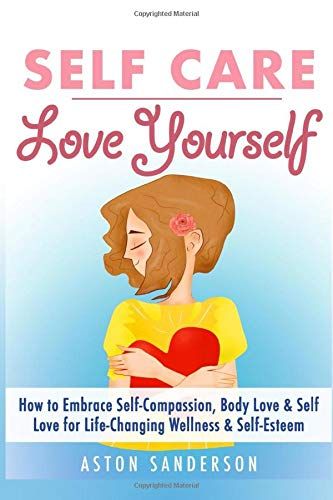 It's like putting out fires. Such a swing only worsens our physical and psychological condition. The right approach is to build your life in such a way that there is no need for emergency assistance in the form of the usual relaxation.
It's like putting out fires. Such a swing only worsens our physical and psychological condition. The right approach is to build your life in such a way that there is no need for emergency assistance in the form of the usual relaxation.
Live in care and love
Life in love and self-care is the implementation of unpleasant, but extremely important decisions for the health of the psyche and inner balance.
- Honesty with oneself. An objective assessment of one's own actions, especially failures, disappointments, failures. Awareness and acceptance of the fact that not everything in life succeeds, there are ups and downs.
- The desire to live one's own life, and not to be a copy of someone more successful, exemplary, ideal. Find your own way, it may be completely different from others and even not approved by someone. But no one will live your life better than you. nine0039
- Allowing yourself not to be brilliant, special and perfect. Sometimes the "ordinary" person in your environment does a lot more for others and life in general than any celebrity.
 It is more important to raise psychologically healthy children than brilliant ones. Life goes on as usual, and let there be more warmth and understanding in it than impeccable cleanliness, luxurious things or ideal figures.
It is more important to raise psychologically healthy children than brilliant ones. Life goes on as usual, and let there be more warmth and understanding in it than impeccable cleanliness, luxurious things or ideal figures. - Cancellation of empty alarm about own non-compliance with standards. Sometimes it seems to me that people treat themselves like an iPhone. Update themselves to the latest version, chasing fashion. Looking for "covers" for themselves. And what is not included does not fit into this standard box - do you need to cut it off or what? Even the cucumbers on the counter are different! Why do we worry about how we look from the outside, whether we fit the templates, whether we comply with accepted standards. “Are my new shoes fashionable enough?”, “Is my gadget quite expensive in my pocket?”, “Have I booked a table in a trendy restaurant, or is the place not so popular anymore?”. nine0018
Self-care is the harmony of the soul
In a society of wholesale mass consumption, we do not notice the loss of soul harmony, we do not see how we replace self-care with banal pleasures: buying a new thing, meeting friends in a pretentious restaurant, going to a boring, but trendy blockbuster.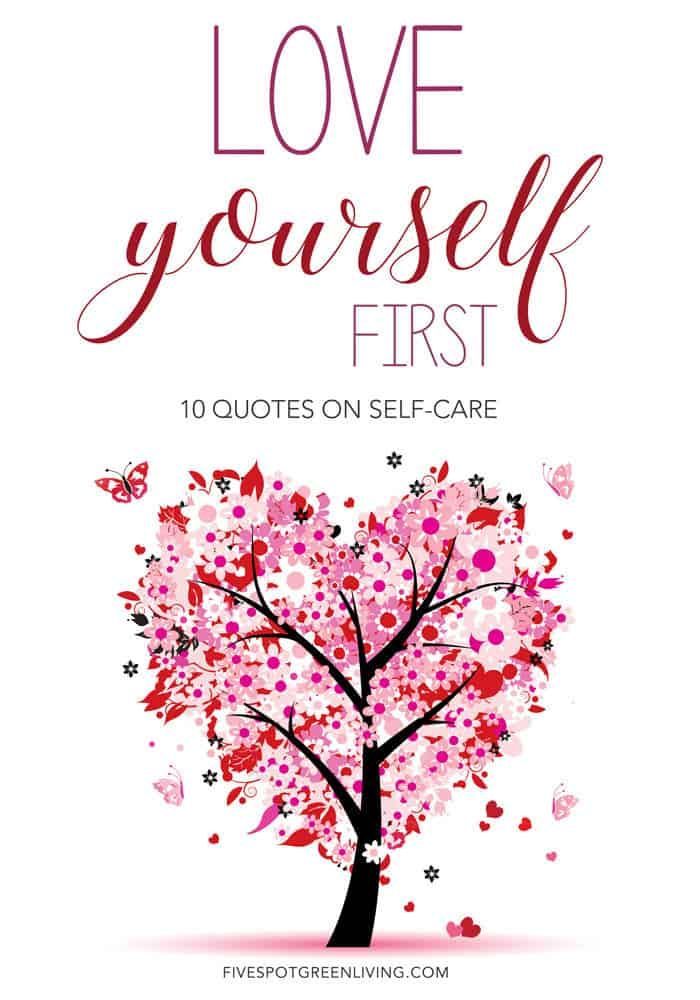
People are used to receiving surrogates instead of true pleasures. And already pleasure is called that which is usually considered as such, and not that from which you experience real satisfaction. While you are waiting for approval from others and focusing on trends, your life is passing by. While you are trying to earn money in order to pay off loans for gadgets, household appliances, an apartment in a prestigious area, a car, and even a vacation ticket, your health is irretrievably lost. In the face of death or a serious illness, people do not worry about unmade purchases, but they regret that they did not pay attention to their loved ones, did not receive warmth, they simply did not have enough usual communication over a cup of tea in the kitchen. Allow yourself to choose what the soul lies to. nine0003
Choose a business or occupation to get satisfaction from creative work. Do not find a destination, namely choose! Friedrich Engels argued that labor turned the ape into a man.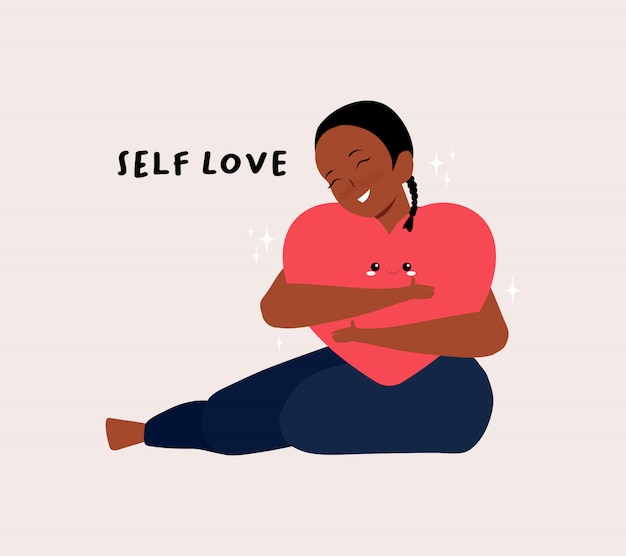 We are happy, we get real satisfaction (not pleasure, but satisfaction) from the contribution to the lives of other people, from the work that creates something in this world. It doesn't matter if it's a status position or not. Even the janitor and the cleaner create - create cleanliness. And your work, no matter how insignificant it may seem, can be valuable and important for society as a whole. nine0003
We are happy, we get real satisfaction (not pleasure, but satisfaction) from the contribution to the lives of other people, from the work that creates something in this world. It doesn't matter if it's a status position or not. Even the janitor and the cleaner create - create cleanliness. And your work, no matter how insignificant it may seem, can be valuable and important for society as a whole. nine0003
Take life into your own hands
Take life into your own hands and stop hiding from it behind the screen of stereotypical joys. Stop within yourself this painful and unnecessary process of fitting yourself to pseudo-ideals. Change the position of the victim, sluggishly adrift, to an active, active one. Do not voluntarily become the object of discussion, evaluation and comparison. You do not fit the generally accepted standards and should not meet them.
Pay attention to how life will change after these steps. You will go from a false, superficial self to a true, human self, perhaps ordinary, but real. Finally, enjoy your life. Learn to enjoy it, and not suffer from your imperfection. Let your life flow in a new way! nine0003
Finally, enjoy your life. Learn to enjoy it, and not suffer from your imperfection. Let your life flow in a new way! nine0003
Come to the "Harmonious Personality" program to go from pathos and problems to happiness, find yourself and learn to live in joy.
Keywords: not specified
What is self-care?
78,408
Know YourselfPractices how to
- Photo
- Getty Images
Don't confuse self-care with selfishness. The point is not that we think only about our needs, but that, only by taking care of ourselves, we will be able to give attention and energy to loved ones. nine0003
What is self-care?
Self-care can be considered any activity through which we consciously invest energy, time, money in our mental, emotional and physical health. In theory, everything is simple, but in practice we often miss a lot.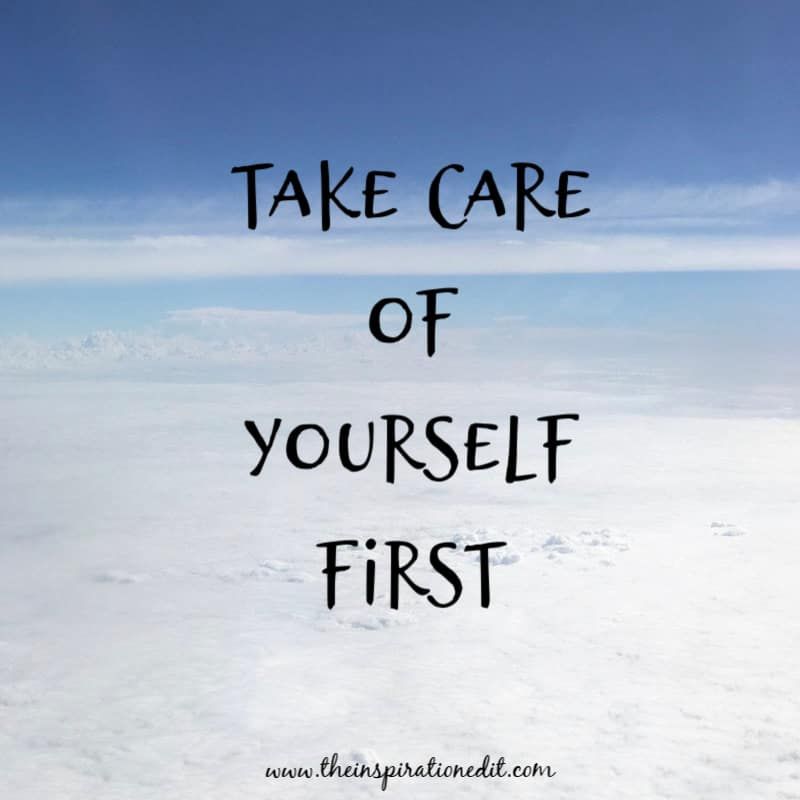 Proper self-care is essential to maintaining a good mood and reducing anxiety. It is also important so that we can properly build relationships with ourselves and others.
Proper self-care is essential to maintaining a good mood and reducing anxiety. It is also important so that we can properly build relationships with ourselves and others.
What is not self-care? nine0024
It is perhaps even more important to understand what is not self-care. If we have to force ourselves to do something and we do not get joy from it, this activity can no longer be considered self-care. According to clinical psychologist Agnes Wainman, “Self-care is what recharges us, it shouldn’t take energy away.”
Taking care of yourself is the key to balance in life
Where to start? Here are the three golden rules:
• Start simple - sleep, rest, enjoy hobbies, go to the doctor. Over time, you will find a rhythm that suits you and understand in what form self-care is most suitable for you personally. nine0003
• Self-care is only something we plan on purpose, not something that happens on its own. It is always our conscious choice.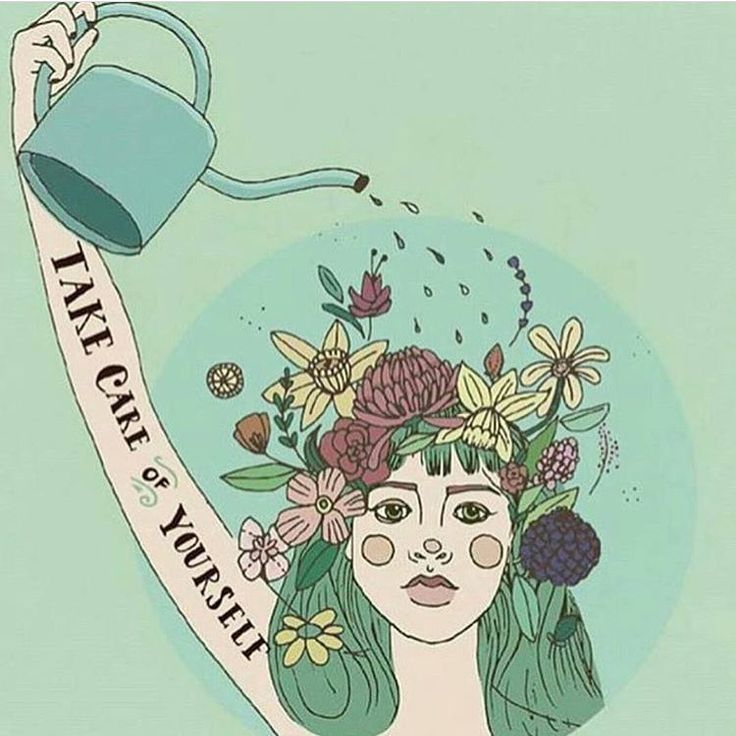 If you are planning something, add it to your schedule, tell others about it to solidify your intention. Actively look for opportunities to invest energy in yourself.
If you are planning something, add it to your schedule, tell others about it to solidify your intention. Actively look for opportunities to invest energy in yourself.
• I often stress the importance of mindfulness when talking to clients. In other words, if you do not see something as taking care of yourself, then you will not get the corresponding effect. Be aware of what you are doing, why you are doing it, how you feel about it and what result you get in the end. nine0003
Only by taking care of ourselves will we be able to give attention and energy to loved ones
What you can do for yourself:
• Write down everything you don't like or don't want to do. For example: do not check email late at night and at night, do not go to events and parties that you do not like, do not answer calls during lunch and dinner.
• Eat a healthy and balanced diet.
• Get enough sleep. An adult needs 7-8 hours of sleep per day.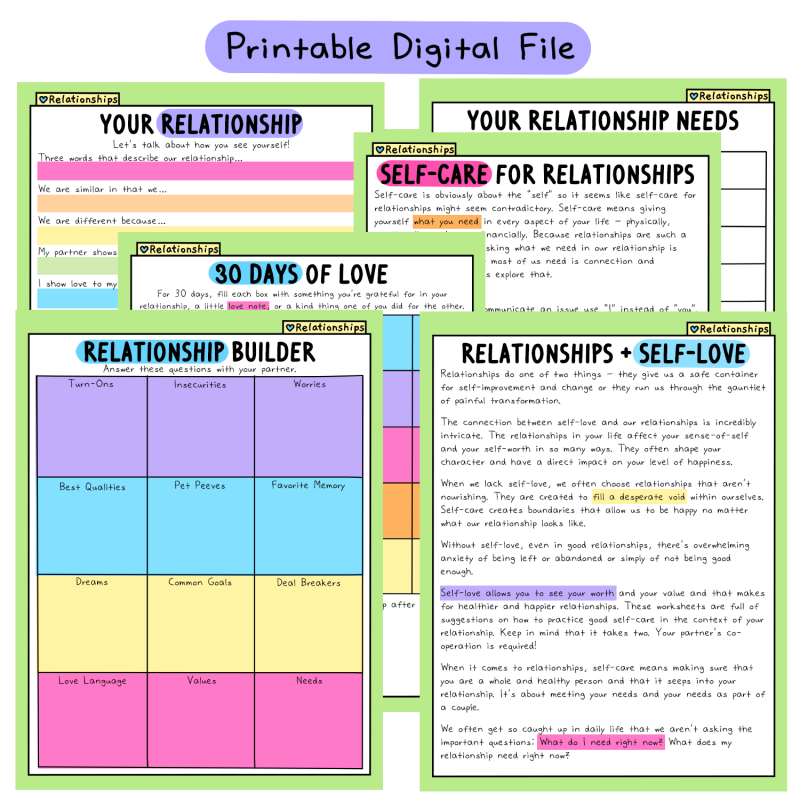 nine0003
nine0003
• Go in for sports or fitness. Many do not know this, but physical activity benefits our emotional health, not just physical. It increases serotonin levels, which in turn improves mood and energy. Keeping in mind the rules of self-care, choose the type of physical activity that you enjoy.
• Do not put off the necessary preventive examinations and visits to the doctor.
• Do relaxation exercises and/or meditate. You can do this at any time of the day. nine0003
• Spend enough time with loved ones.
• Do something every day to relax, whether it's a short walk or 30 minutes of quiet time.
• Do something nice for yourself every day: go to the movies, cook your favorite meal, arrange a meeting with friends.
• Look for opportunities to laugh.
Make a 15-day self-care schedule and compare how you feel before and after. And remember, as with everything else in life, taking good care of yourself comes with experience. nine0003
About the author: Rafaille Michel, counseling psychologist.